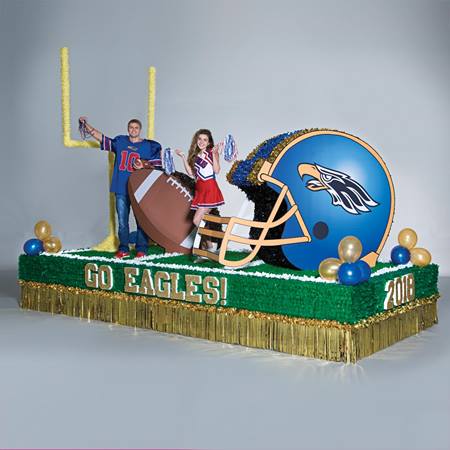Introduction to Float Decoration
Decorating a float is not just about gluing some flowers and throwing on a banner. It’s an art form that combines creativity, planning, and a dash of enthusiasm. As someone who has been involved in float decoration for community parades for over a decade, I’ve learned that the magic lies in the details. This guide will help you navigate the exciting world of float decoration, whether you’re a novice or looking to refine your skills.
Choosing Your Float Theme
The first step in float decoration is selecting a theme. The theme sets the tone of your float and informs your design choices.
Popular Float Themes
- Seasonal Celebrations (e.g., Christmas, Halloween)
- Movies and TV Shows
- Historical Events
- Community Pride
- Environmental Awareness
Brainstorming Ideas
Gather your team and brainstorm ideas. This can be an incredibly fun process, but it’s essential to keep your audience in mind. Choose themes that resonate with your community or event.
Gathering Your Materials
Once you have your theme, the next step is to gather materials. Here are some essentials for float decoration:
- Frame and base materials (plywood, wooden pallets)
- Decorative items (flowers, balloons, streamers)
- Adhesives (glue gun, tape, staples)
- Lighting options (LED lights, battery-powered lanterns)
- Safety gear (gloves, goggles)
Comparison of Decoration Materials
| Material | Pros | Cons |
|---|---|---|
| Floral Foam | Lightweight, easy to shape | Not weather-resistant |
| Cardboard | Inexpensive, versatile | Not durable for wet weather |
| Wood | Sturdy, long-lasting | Heavier, more expensive |
Designing Your Float
Designing your float is where your creativity can truly shine. Here are some steps to enhance your float design:
Sketching Your Ideas
Start with a rough sketch of your float layout. This doesn’t have to be perfect; it’s just a guideline. Include placement for major elements like banners, props, and flowers.

Color Schemes and Patterns
Choose a color scheme that complements your theme. Use contrasting colors for visibility and appeal.
Advanced Decoration Techniques
Once you have your basic design, consider incorporating advanced techniques to elevate your float:
3D Elements
Add depth to your float by using 3D elements. This could involve creating structures that pop out or layering decorations for a more dynamic look.

Lighting Effects
Incorporating lights can enhance the visual appeal, especially if your float is in a night parade. Use LED strips or fairy lights strategically.
Best Practices for Float Decoration
Implementing best practices can save you time and ensure your float looks polished:
Teamwork and Delegation
Make sure to assign tasks according to each team member’s strengths. This promotes efficiency and creativity.

Quality Over Quantity
Focus on quality decorations that stand out, rather than trying to include too many elements that can clutter the design.
Final Touches
Once your float is assembled, it’s essential to check for any missing elements or areas that need improvement. Make sure to:
- Secure all decorations properly
- Check for visibility from all angles
- Test any lighting or sound equipment

Common Mistakes to Avoid
Even seasoned decorators can make mistakes. Here are some common pitfalls to avoid:
Overcrowding Your Float
Too many decorations can overwhelm the viewer. Stick to a balanced design that highlights key elements.
Ignoring Weather Conditions
Ensure your materials can withstand the elements. Consider using waterproof decorations if rain is in the forecast.

Frequently Asked Questions
What are the best materials for float decoration?
The best materials vary based on your theme, but common choices include floral foam, cardboard, and wood for sturdy structures.
How long does it take to decorate a float?
The time required depends on the complexity of your design. A simple float might take 1-2 days, while a more elaborate one could take a week or more.

Can I use flowers on my float?
Yes, flowers (real or artificial) can add a beautiful touch. Just make sure to secure them properly to prevent them from falling off during the parade.